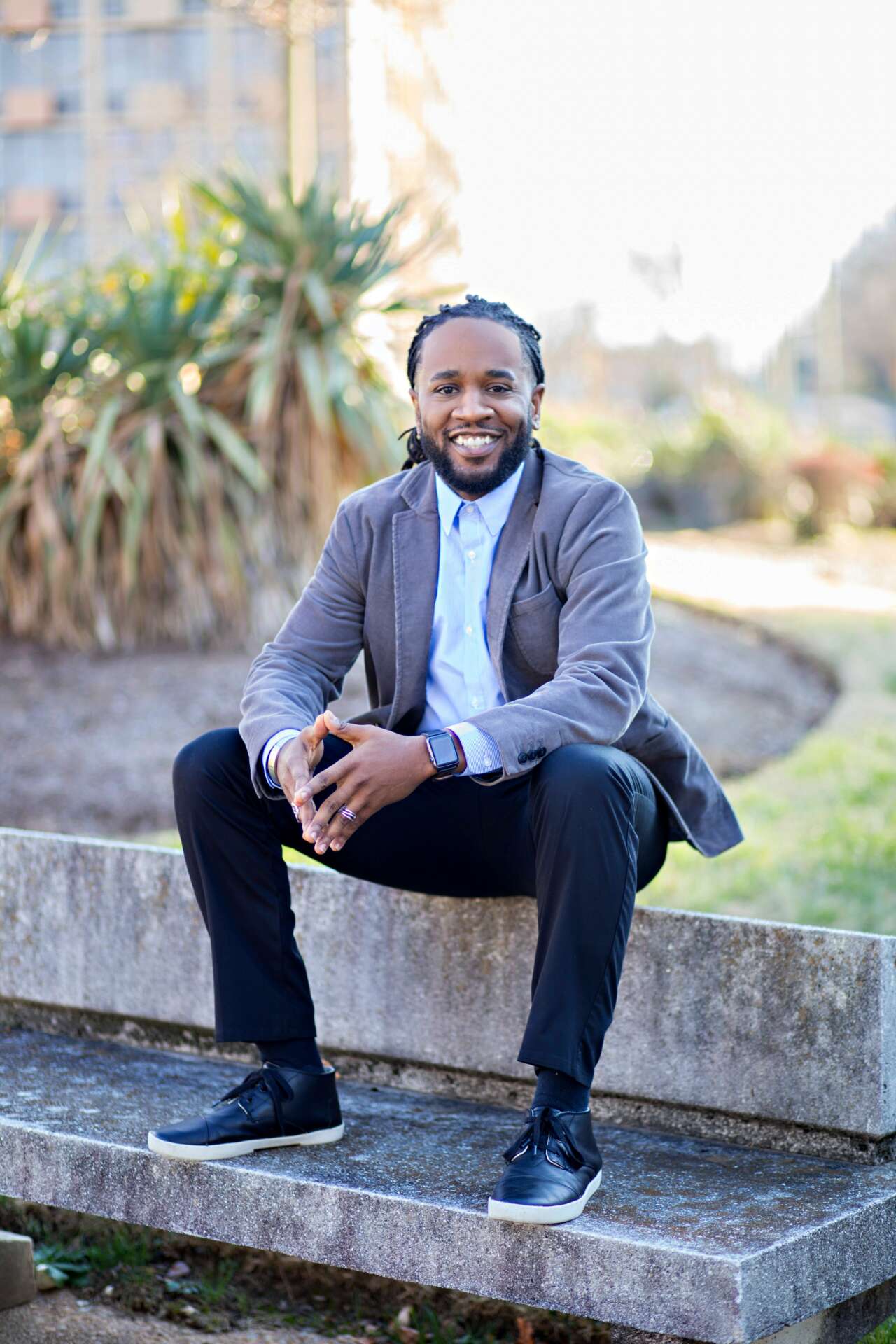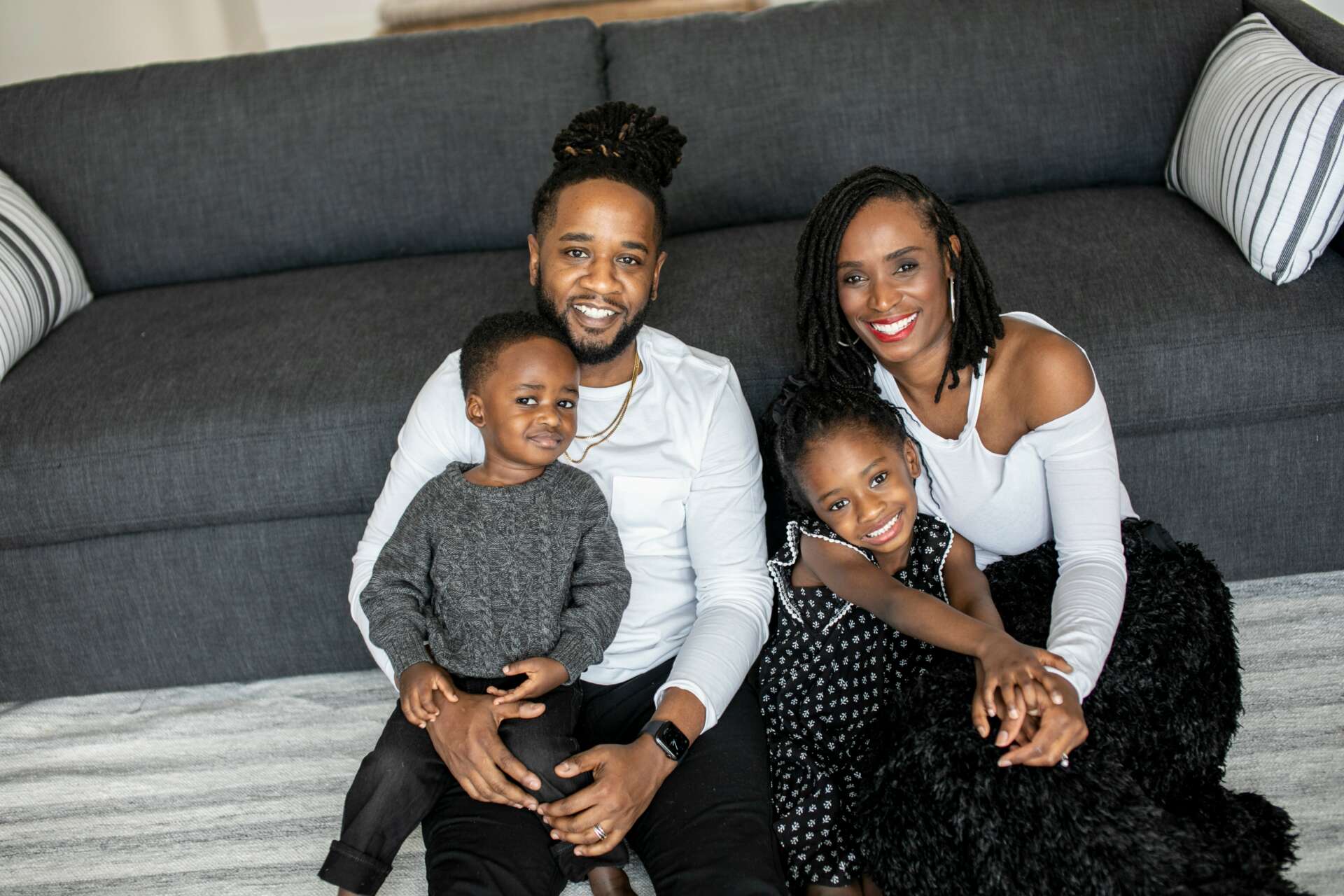We caught up with the brilliant and insightful Eric Capehart a few weeks ago and have shared our conversation below.
Eric , looking forward to hearing all of your stories today. What sort of legacy are you hoping to build. What do you think people will say about you after you are gone, what do you hope to be remembered for?
My mission statement is to live free, die old and live forever. In my mind, this mission will lead to whatever my legacy will be. In 2021 I was speaking at a funeral of a young man who was very close to me, and I spoke on the idea of legacy. I said that we all should strive to leave behind what we can and hope that it is good because our legacy will mostly be determined by what we leave and to whom we leave it. In my personal life, I’m a husband and father and these roles are an integral part of my legacy. In my professional life as a mentor, counselor, and coach I’ve intentionally planted seeds with every person I’ve worked with. I do this because I know each person I’m fortunate to work with is also a part of what my legacy will be. There is a quote from Maya Angelou that resonates with me when I think about my life and my legacy. Maya Angelou said, “you have no idea what your legacy will be because your legacy is every life you touch.”



Eric , love having you share your insights with us. Before we ask you more questions, maybe you can take a moment to introduce yourself to our readers who might have missed our earlier conversations?
I think my life’s calling was discovered early in my life when I was 22 years old. I was a senior in college and starting my entrepreneurial journey. As a young man in college, I joined a fraternity and a major component of membership was mentoring, a role that I would eventually realize my life was well suited for. My first time mentoring was going to a public housing complex near the campus. I met an 8-year-old boy who made such an impact on me that I knew right then that I had something to offer to other people. I realized that what I had to offer was genuine and I didn’t feel like I was trying to do something; I just intrinsically knew what to do. Fast forward through grad school and in 2007 I founded All The King’s Men Mentoring Organization. As a non-profit organization, our mission was to reduce the likelihood that boys would come into contact with juvenile court for acts of delinquency. For 11 years I trained mentors, mentored hundreds of boys, and unknowingly set the stage for my next career as a mental health counselor.
Working as a mental health counselor for 6 years, I was trained to address the various issues as they related to the psychological, emotional, and social challenges many of my clients faced every day of their lives. When I reflect on my time at All The King’s Men I realize I was helping my mentees deal with the same range of issues without knowing I was playing a role in improving their mental health. As a professional counselor, I worked in private practice and the University setting. Throughout my tenure, I was always drawn to and attracted black male clients. Many times during intake, new clients would tell me that they always wanted to work with someone who looked like them and someone that they felt could relate to the unique challenges of being a black male. This relatability helped overcome apprehension and led to a trusting relationship. I also noticed that black women would prefer to work with me, and surprisingly white mothers would bring their sons to work with me. No matter who I was fortunate enough to work with, I always knew that my secret weapon was relatability. I reminded myself that just like when I first mentored, I had something to offer that was genuine and didn’t seem like I had to try to be something; I just did what I do best.
Now, as I’ve transitioned into Professional Life Coaching, my practice is targeted toward Student-Athletes. I’m specifically drawn to teams where black males represent the majority, while also representing the minority in the wider context of the school or university. This population is important to me because it’s no secret that those athletes are faced with challenging situations in their sport, their academics, and their campus environment.
I offer a variety of coaching services that are tailored to address the needs of athletes. My coaching services include one-on-one coaching and group coaching. I also provide coaching resources, such as ebooks, audio programs, and online courses. My coaching services are designed to help athletes achieve their athletic, academic, and personal goals outside of sports.


Any stories or insights that might help us understand how you’ve built such a strong reputation?
One thing I believe helped me build a solid reputation in my market is the fact that I started my work nearly 20 years ago. In that time I’ve built tremendous social equity for the work at my non-profit and received numerous recognitions for my contributions to the community. Being a Nashville native helps too. There is something special about a hometown kid making it and giving back. I have to acknowledge that being a black male in the counseling and coaching field was also a big help in building my reputation. We’re considered unicorns!
I also think my wife helped to build our collective reputation in the market. I was already making moves and had a good name, I would be remiss if I didn’t mention my wife of 11 years and how she has positively added to the Capehart brand.
Have you ever had to pivot?
I feel like I’ve always had to pivot in my career. After my 9th year as CEO of my non-profit, I began to feel that a pivot was coming. After nearly a decade of non-profit work, I was ready to step into a new career, and I was ready to get married and start a family. After 11 years at All The King’s Men, I decided to pivot and pursue a career in mental health which meant I had to go back to school for a 2nd Master’s Degree.
My latest career pivot was kind of a natural progression of my career and somewhat forced due to unforeseen circumstances. While working as a counselor, I was having some challenges with my clinical supervisors and I knew that I couldn’t rely on them to do what was right by me so I began shifting my work into more of a coaching role. When my intuition came true about the people I trusted in the clinical field, I seamlessly pivoted into the coaching field and got certified through the International Coaching Federation as a Certified Professional Life Coach.
Contact Info:
- Website: www.EricCapehartcoaching.com
- Instagram: @ericdcapehart
- Facebook: https://www.facebook.com/ericdcapehart
- Linkedin: Linked In https://www.linkedin.com/in/ericcapehart/
- Other:
Image Credits
Emanuel Roland


